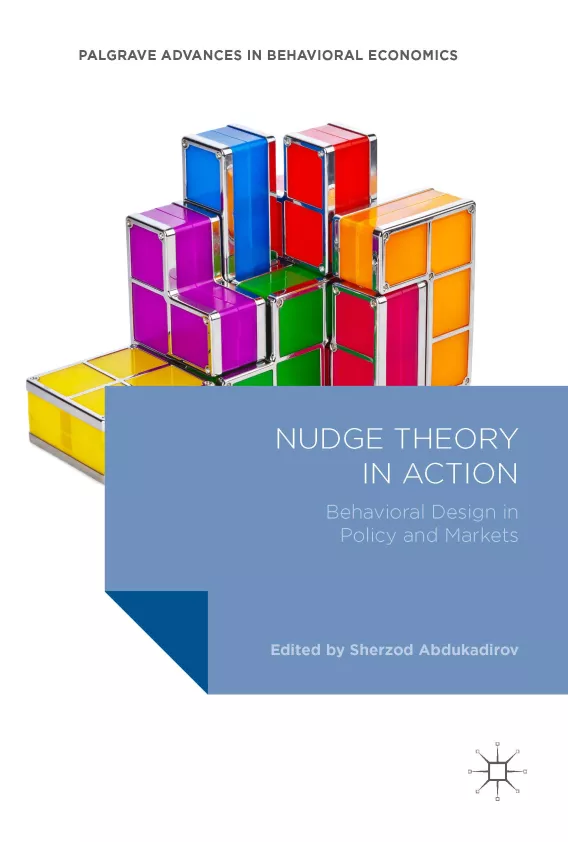- | Regulation Regulation
- | Books Books
- |
Nudge Theory in Action
Behavioral Design in Policy and Markets
Published by Palgrave Macmillan
This collection challenges the popular but abstract concept of nudging, demonstrating the real-world application of behavioral economics in policy-making and technology.

This collection challenges the popular but abstract concept of nudging, demonstrating the real-world application of behavioral economics in policy-making and technology. Groundbreaking and practical, it considers the existing political incentives and regulatory institutions that shape the environment in which behavioral policy-making occurs, as well as alternatives to government nudges already provided by the market. The contributions discuss the use of regulations and technology to help consumers overcome their behavioral biases and make better choices, considering the ethical questions of government and market nudges and the uncertainty inherent in designing effective nudges. Four case studies - on weight loss, energy efficiency, consumer finance, and health care - put the discussion of the efficiency of nudges into concrete, recognizable terms. A must-read for researchers studying the public policy applications of behavioral economics, this book will also appeal to practicing lawmakers and regulators.
Contents
Foreword
- Tyler Cowen, Mercatus Center at George Mason University
Introduction: Regulation versus Technology as Tools of Behavior Change
- Sherzod Abdukadirov, Mercatus Center at George Mason University
PART I: THEORY
Chapter 1: Overview of Behavioral Economics and Policy
- Mark D. White, College of Staten Island, CUNY
Chapter 2: The Four Pillars of Behavioral Paternalism
- Mario J. Rizzo, New York University
Chapter 3: Failing Better: What We Learn by Confronting Risk and Uncertainty
- Adam Thierer, Mercatus Center at George Mason University
Chapter 4: Behavioral Nudges and Consumer Technology
- Steve Wendel, Morningstar, Inc.
Chapter 5: Private-Sector Nudging: The Good, the Bad, and the Uncertain
- Jodi N. Beggs, Northeastern University
Chapter 6: Who Should Nudge?
- Sherzod Abdukadirov, Mercatus Center at George Mason University
PART II: CASE STUDIES
Chapter 7: Weight-Loss Nudges: Market Test or Government Guess?
- Michael Marlow, California Polytechnic State University
Chapter 8: Nudging in an Evolving Marketplace: How Markets Improve Their Own Choice Architecture
- Adam C. Smith, Johnson & Wales University
- Todd Zywicki, Mercatus Center at George Mason University
Chapter 9: One Standard to Rule Them All: The Disparate Impact of Energy Efficiency Regulations
- Sofie E. Miller, George Washington University
- Brian F. Mannix, George Washington University
Chapter 10: Nudges in Health Care
- Robert Graboyes, Mercatus Center at George Mason University
- Jessica Carges, Mercatus Center at George Mason University
Chapter 11: Conclusion: Behavioral Economics and Policy Interventions
- Richard Williams, Mercatus Center at George Mason University

